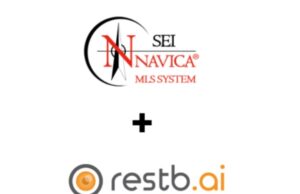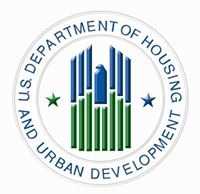HUD ISSUES FINAL RULE EXTENDING RELIGIOUS LIBERTY PROTECTIONS TO BENEFICIARIES OF HUD PROGRAMS AND ACTIVITIES
WASHINGTON – (RealEstateRama) — The U.S. Department of Housing and Urban Development (HUD) published a final rule that provides new religious liberty protections for beneficiaries of its programs and activities. In addition, HUD’s new rule ensures that faith-based providers can compete for government funds on the same basis as any other private organization. Read more.
For example, the beneficiary of child care carried out by a faith-based organization with direct HUD funds under the Department’s Community Development Block Grant (CDBG) Program must be notified in writing that he or she cannot be discriminated against based on religion; cannot be required to attend or participate in any privately funded religious activities that are offered separate from the CDBG-funded program or activities; and may request an alternative provider if the beneficiary objects to the religious character of the organization. At the same time, the regulations require that all decisions about Federal financial assistance be based solely on merit, without regard to an organization’s religious character, affiliation or lack thereof. The regulations formally implement Executive Order 13559. Other Federal agencies are also publishing final regulations that apply to programs and activities that they fund.
“These regulations build on widespread agreement that we can and should do more to protect the religious liberty of beneficiaries and provide greater clarity and transparency about applicable church-state rules,” said Melissa Rogers, Executive Director of the White House Office of Faith-based and Neighborhood Partnerships. “These reforms will strengthen partnerships that serve people in need, and we commend the agencies for working together to issue these final regulations.”
HUD Secretary Julián Castro added, “These new regulations strengthen religious liberty protections for beneficiaries across HUD programs and help eligible faith-based applicants to compete for HUD funding on an equal footing. As HUD seeks to help build ladders of opportunity for all Americans, these new protections benefit both grantees and beneficiaries.”
HUD’s final regulations:
- Require that all decisions about awards of Federal financial assistance are based solely on merit, without regard to an organization’s religious character or affiliation or lack thereof, and are free from political interference, or the appearance of such interference.
- Make clear that faith-based organizations are eligible to participate in HUD programs and activities on the same basis as any other organization.
- Clarify what activities can and cannot be supported with direct Federal financial assistance by replacing use of the term “inherently religious activities” with the term “explicitly religious activities” and providing examples of such activities.
- Prohibit organizations that receive Federal financial assistance under a HUD program or activity from discriminating against beneficiaries or prospective beneficiaries on the basis of religion, a religious belief, a refusal to hold a religious belief, or a refusal to attend or participate in a religious practice, in providing services or carrying out activities with such assistance.
- Require faith-based organizations that carry out program or activities with direct Federal financial assistance from HUD to provide written notice of certain protections to beneficiaries and prospective beneficiaries of the programs or activities. Specifically, an organization that receives direct Federal financial assistance is required to give notice to beneficiaries and prospective beneficiaries that—
- The organization may not discriminate against a beneficiary or prospective beneficiary based on religion, a religious belief, a refusal to hold a religious belief, or a refusal to attend or participate in a religious practice;
- The organization may not require a beneficiary to attend or participate in any explicitly religious activities that are offered by the organization, and any participation by the beneficiaries in those activities must be purely voluntary;
- The organization must separate in time or location any privately funded explicitly religious activities from activities supported by direct Federal financial assistance;
- If a beneficiary or prospective beneficiary objects to the religious character of the organization, the organization will undertake reasonable efforts to identify and refer the beneficiary to an alternative provider to which the beneficiary has no such objection; and
- A beneficiary or prospective beneficiary may report violations of these protections, including any denials of services or benefits, to the Federal agency or intermediary administering the program.
While these regulations become effective 30 days after publication in the Federal Register, recipients of Federal financial assistance will have 90 days to comply with the final regulations. For more information, click here.
###
HUD’s mission is to create strong, sustainable, inclusive communities and quality affordable homes for all.
More information about HUD and its programs is available on the Internet
at www.hud.gov and http://espanol.hud.gov.
You can also connect with HUD on social media and follow Secretary Castro on
Twitter and Facebook or sign up for news alerts on HUD’s Email List.
Jovette Gadson
202-402-3779
http://www.hud.gov/news/index.cfm










